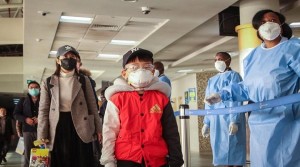Coronaviruses are a large family of viruses found in both animals and humans. Some infect people and are known to cause illness ranging from the common cold to more severe diseases.
As with other respiratory illnesses, infection can cause mild symptoms including a runny nose, sore throat, cough, and fever. It can be more severe for some persons and can lead to pneumonia or breathing difficulties. More rarely, the disease can be fatal.

The new coronavirus is a respiratory virus which spreads primarily through contact with an infected person through respiratory droplets generated when a person, for example, coughs or sneezes, or through droplets of saliva or discharge from the nose. It is important that everyone practice good respiratory hygiene.
What can I do to protect myself?
Stay aware of the latest information on the outbreak and take care of your health by doing the following:
- Wash your hands frequently with soap and water or use an alcohol-based hand rub if your hands are not visibly dirty
- Maintain social distancing – maintain at least 1 metre (3 feet) distance between yourself and other people, particularly those who are coughing, sneezing and have a fever.
- Avoid touching eyes, nose and mouth
- If you have fever, cough and difficulty breathing, seek medical care early. Tell your health care provider if you have travelled in an area in China where 2019-nCoV has been reported, or if you have been in close contact with someone with who has travelled from China and has respiratory symptoms.

Wearing a medical mask can help limit the spread of some respiratory disease. However, using a mask alone is not guaranteed to stop infections and should be combined with other prevention measures including hand and respiratory hygiene and avoiding close contact – at least 1 metre (3 feet) distance between yourself and other people.
Click HERE for further information.